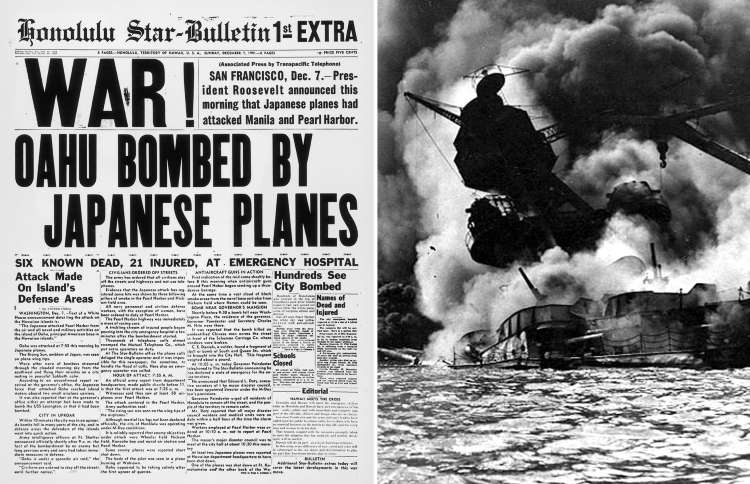|
The Japanese attack on Pearl Harbor on December 7, 1941, was a pivotal event in the history of the United States and Japan. The reasons for the attack have been debated by historians and scholars for decades. While there is no one answer to this question, there are several factors that can help explain why Japan launched such a daring attack. One of the primary reasons Japan attacked Pearl Harbor was its desire to expand its empire and secure its access to natural resources, particularly oil. Japan was heavily reliant on oil imports, and the United States had placed an embargo on oil shipments to Japan in response to its aggression in China. In fact, in the months leading up to the attack, Japan's oil supplies had dwindled to just a few months' worth. In order to secure its access to oil and other resources in Southeast Asia, Japan felt it had no choice but to attack the United States and its Pacific fleet. Another factor that contributed to Japan's decision to attack Pearl Harbor was the belief among Japanese military leaders that the United States would not be able to mount an effective response to an attack in the Pacific. The United States was still recovering from the Great Depression and was not yet fully prepared for war. Japan believed that if it could knock out the US Pacific fleet in a single surprise attack, it would be able to establish a strong defensive position in the Pacific and negotiate a favorable peace settlement. Historians have also pointed to cultural factors that played a role in Japan's decision to attack Pearl Harbor. Japan had a deeply ingrained sense of honor and duty, and many Japanese military leaders believed that attacking the United States was the only way to preserve their country's honor and independence. In addition, Japan's military culture emphasized the importance of decisive action and the willingness to take risks. Statistical evidence also supports these factors. For example, in the months leading up to the attack, Japan's oil imports from the United States dropped from an average of 4.5 million barrels per month to just 1.5 million barrels per month. This represented a significant threat to Japan's war efforts, as oil was critical to powering its military machines. Additionally, Japan's military spending had skyrocketed in the years leading up to the attack, indicating a strong desire to expand its military capabilities and secure its position in the Pacific. In conclusion, the reasons for Japan's attack on Pearl Harbor were multifaceted and complex, driven by a combination of economic, military, and cultural factors. While historians continue to debate the precise motivations behind the attack, there is little doubt that it was a pivotal event that changed the course of World War II and shaped the history of the United States and Japan for decades to come. Written by Versus History Guest Blogger, Shehab Abdullah.
0 Comments
Leave a Reply. |
Categories
All
Archives
April 2024
|

 RSS Feed
RSS Feed